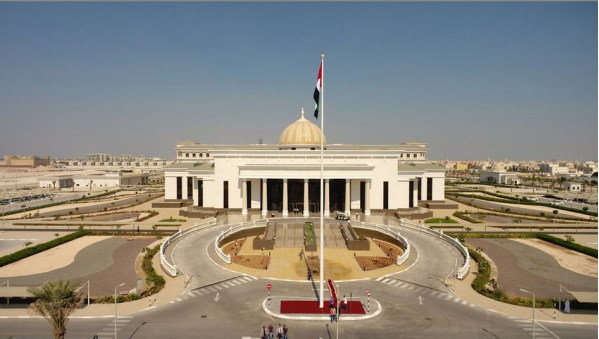
Abu Dhabi Federal Court Sentences Over 40 Activists to Life in UAE for ‘Terror’ Offences Related to Justice and Dignity Committee
Fiona Nanna, ForeMedia News
4 minutes read. Updated 11:30AM GMT Thurs, 11 July, 2024
The Abu Dhabi Federal Court of Appeal in the United Arab Emirates (UAE) has sentenced 43 activists to life imprisonment after convicting them of terror-related charges connected to the Justice and Dignity Committee. The state media reported that these individuals were found guilty of “creating a terrorist organization.” This ruling has drawn severe criticism from United Nations experts and human rights organizations, who have condemned the mass trial process.
The case, which has garnered international attention, involves the trial of more than 80 human rights defenders and political dissidents, collectively referred to as the “UAE 84.” The group was accused of establishing a clandestine organization, the “Justice and Dignity Committee,” with the intention of committing acts of violence and terrorism on UAE soil. The UAE’s prosecutor general linked most of the defendants to the Muslim Brotherhood, an Islamist movement banned in the UAE since 2014, along with its local affiliate, the al-Islah party.
On Wednesday, the Abu Dhabi Federal Court of Appeal issued life sentences to 43 of the defendants. An additional 10 individuals received prison terms ranging from 10 to 15 years for charges related to cooperation with al-Islah and money laundering. While one defendant was acquitted, 24 cases were deemed inadmissible.
Human Rights Watch (HRW) and Amnesty International have reported that many of these defendants have already spent over a decade in prison, stemming from the “UAE 94” trial in 2013. However, UAE authorities maintain that the current charges are distinct from those in 2013, which did not involve allegations of financing a terrorist organization.
The trial has been criticized for its lack of transparency, with Amnesty International noting that the indictment, charges, defense lawyers, and names of defendants were kept secret, and information was only revealed through leaks. HRW identified prominent figures among those sentenced, including Nasser bin Ghaith, Abdulsalam Darwish al-Marzouqi, Sultan Bin Kayed al-Qasimi, and prominent activist Ahmed Mansoor.
Amnesty International’s Devin Kenney called the trial a “shameless parody of justice,” urging the UAE to revoke the verdict and release those sentenced. He emphasized the violation of fundamental legal principles, such as the prohibition of double jeopardy and retroactive punishment.
Khalid Ibrahim from the Gulf Center for Human Rights highlighted the personal toll on the defendants, pointing out the long-term separation from their families and the impact on their children’s lives.
Despite its wealth and advancements in high-tech sectors, the UAE remains restrictive in terms of political activity. The federation, which includes prominent emirates like Abu Dhabi and Dubai, does not permit political parties and has no official opposition. In 2013, nearly 70 Islamists were imprisoned for an alleged coup plot, reflecting the government’s stringent stance on political dissent.
Backlinks:
- For further insights into the human rights situation in the UAE, visit Amnesty International.
- For more detailed reports and updates, check out Human Rights Watch.
- Read more about the Gulf Center for Human Rights’ stance on the issue here.
- Learn more about the UAE’s legal system and its implications on political dissent from Al Jazeera.

